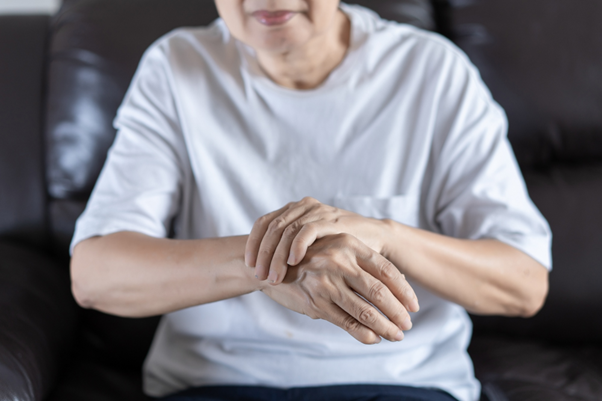What is Rheumatoid Arthritis?
Rheumatoid arthritis is an autoimmune disease, which means your body’s immune system mistakenly attacks its own healthy tissues. In RA, the immune system targets the joints, causing inflammation and pain. While it can affect any joint, the hands, wrists, and knees are commonly affected. Over time, if untreated, RA can lead to permanent joint damage and even affect other organs.
Unlike osteoarthritis, which is caused by wear and tear on the joints, RA is driven by an overactive immune response. Early diagnosis and treatment are crucial to managing the disease and preventing further complications.
Common Symptoms of Rheumatoid Arthritis
The symptoms of RA can vary from person to person, but here are some of the most common ones to look out for:
- Joint pain and swelling, especially in the mornings or after long periods of rest.
- Stiffness that makes it hard to move your joints, often worse in the morning.
- Fatigue or feeling unusually tired, even after resting.
- Warm, tender joints that may feel swollen and painful.
- Joint deformities that may develop if the disease is left untreated for a long time.
If you notice any of these symptoms, it’s important to see a doctor as soon as possible. Early treatment can help you manage the condition and prevent long-term damage.
What Causes Rheumatoid Arthritis?
The exact cause of RA isn’t fully understood, but there are several factors that can increase your risk:
- Genetics: If you have a family history of RA, you might be more likely to develop it.
- Age: RA most often begins in middle age, though it can affect people of any age.
- Gender: Women are more likely than men to develop RA.
- Smoking: Smoking can increase your risk, especially if you have a family history of the disease.
While these factors increase your chances of developing RA, it’s important to know that the disease can affect anyone, even without these risk factors.
Treatment Options:
It can be managed effectively with the right treatment. At Suraksha Hospital, we offer a range of options to help control symptoms and improve quality of life:
- Medications: Disease-modifying drugs (DMARDs) help slow the disease’s progression. Biologic treatments may be used if other medications don’t work.
- Pain relief: Nonsteroidal anti-inflammatory drugs (NSAIDs) and steroids can help reduce pain and inflammation.
- Physical therapy: A physiotherapist can guide you through exercises to maintain joint flexibility and strength.
- Lifestyle changes: Regular exercise, a healthy diet, and weight management can help reduce symptoms and improve your overall health.
Living with Rheumatoid Arthritis
Living with RA can be challenging, but it’s possible to maintain a good quality of life. Here are some helpful tips:
- Stay active: Regular physical activity, like walking, swimming, or yoga, can help reduce stiffness and improve joint mobility.
- Joint protection: Use devices like splints or braces to protect your joints and make daily activities easier.
- Emotional support: RA can be tough on your emotional well-being, so it’s important to seek support from friends, family, or even a support group.
Early Diagnosis is Key
Rheumatoid arthritis is a long-term condition, but with early diagnosis, treatment, and proper management, you can continue to lead an active, fulfilling life. If you think you may have RA or if you're experiencing any symptoms, don’t wait—contact us at Suraksha Hospital today. Our experienced team will work with you to find the best treatment plan and help you manage your health.
Book an appointment with us today and take the first step toward managing rheumatoid arthritis with confidence!


